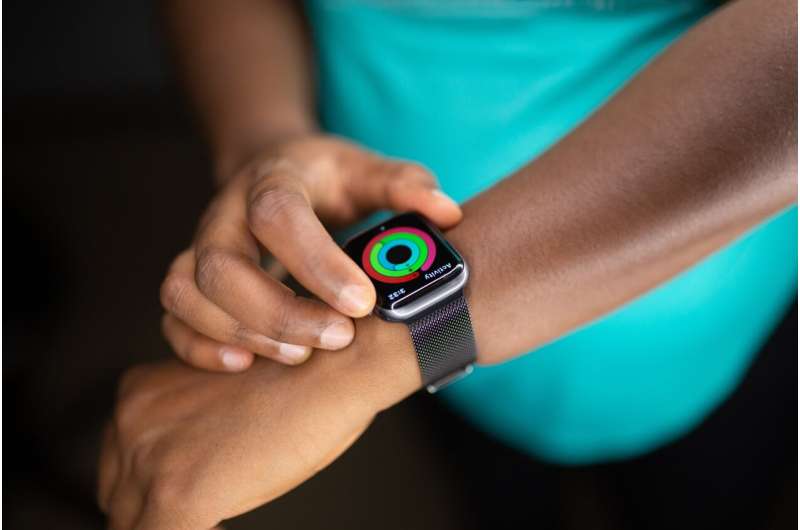This article has been reviewed according to Science X's editorial process and policies. Editors have highlighted the following attributes while ensuring the content's credibility:
fact-checked
trusted source
proofread
Smart monitoring of test subjects is the future of clinical research, says data scientist

Knowing whether or not a treatment is working just by wearing your watch? Data scientist Ahnjili ZhuParris has identified a lot of opportunities for the use of machine learning in clinical research to monitor test subjects at home. "It is low-threshold and accurate."
It was more or less by chance that she came to Leiden. Ahnjili ZhuParris was born in New York, grew up in Hong Kong and studied Biomedical Sciences in Edinburgh. She then took a master's in Cognitive Neuroscience in Nijmegen.
"A friend of mine worked at the CHDR, the Center for Human Drug Research, in Leiden, and that appealed to me too. I was taken on and did research on data collection in test subjects via mobiles and what are known wearables, such as smart watches. My supervisor pointed out to me that this could be a good area for Ph.D. research."
Monitoring patients at home
No sooner said than done. On 13 June, ZhuParris will defend her dissertation Development of Machine Learning-Derived Digital Biomarkers for Trial@Home Clinical Trials.
"I looked for smart ways of monitoring test subjects in clinical studies at home without putting any extra burden on the individuals involved. Using their own smart phone and an app, or a smart phone or smart watch provided by CHDR, we can obtain a lot of information without the test person having to make any effort."
This way, we can track the number of steps, how many hours of sleep and the number of phone calls and messages sent and received.
All this data is analyzed by machine learning, a collection of self-learning algorithms. "The advantage of machine learning is that it can discover subtle patterns in the data that can point to changes in the health of the patients."
In the studies that ZhuParris conducted, she succeeded in using machine learning to understand how subjects fared at home and whether treatments for depression, Parkinson's and other conditions were effective.
"In the case of Parkinson's, with a simple 'finger test' that the patient does at home, we can see whether and when their medication starts to work. That saves a lot of time and effort because the patient doesn't have to pay a separate visit to the doctor to undergo an exhaustive physical examination."
Her conclusion is clear. "This is the future of long-term clinical research, where test candidates can go home between visits. It is low-threshold, accurate and costs little effort." There are some challenges, ZhuParris says.
"For people suffering from depression, we know that, to monitor their recovery, it is important to ask them every day how they are feeling." Another challenge is that there is so far no uniform app or wearable suitable for standard use in these studies.
New challenge
ZhuParris herself is currently facing other challenges. She has left CHDR and is working for a start-up developing an app that will predict what a person's face will look like after cosmetic surgery. "It's completely different, but really good to work on. And I'm still making a contribution to optimizing the consultation process between doctor and patient."
In addition to this, ZhuParris is also spending time on artistic projects. She already has several exhibitions to her credit as an AI artist. Her work will shortly be shown in an exhibition in South Korea. In the exhibition area, smart fashion-police drones will identify members of the public who are committing a fashion crime.
"I enjoy taking existing AI applications and using them in very different scenarios. It's great that I have more time for this now that I've finished my Ph.D."
More information: Ph.D. defense: www.universiteitleiden.nl/en/e … home-clinical-trials



















